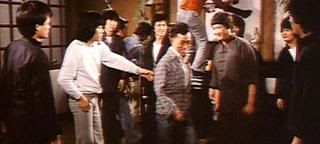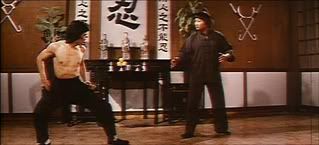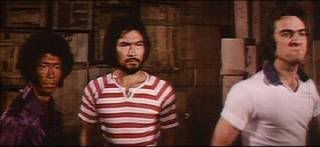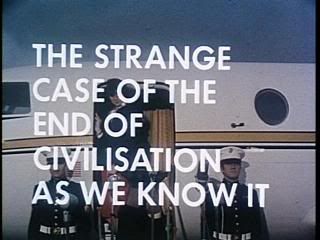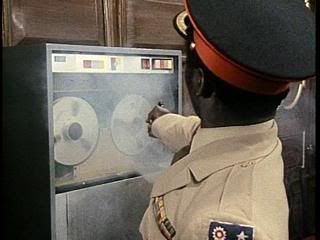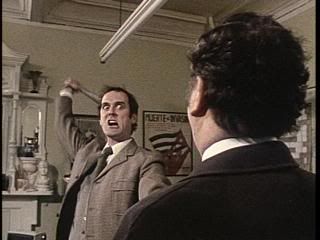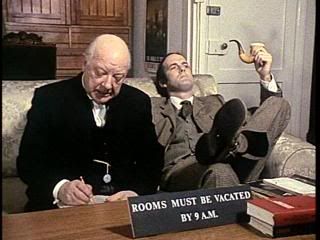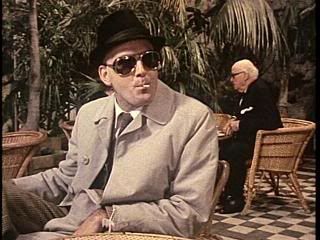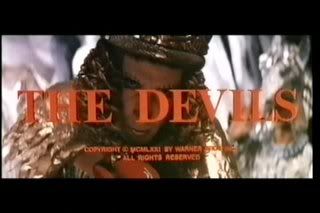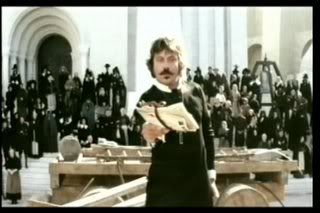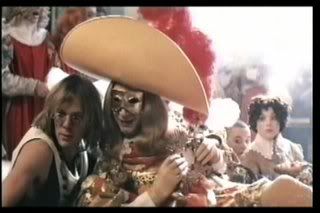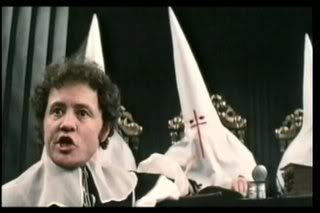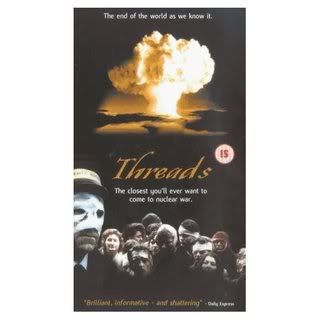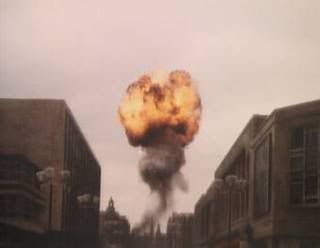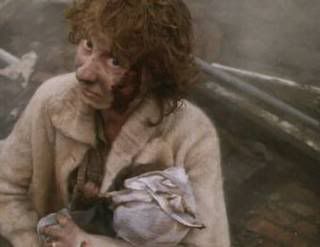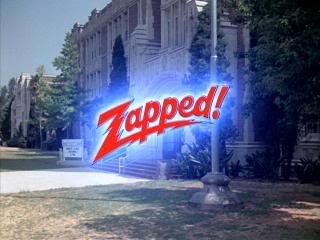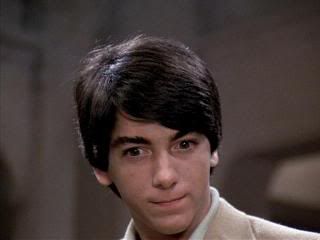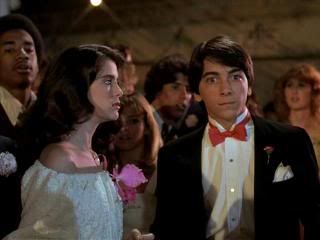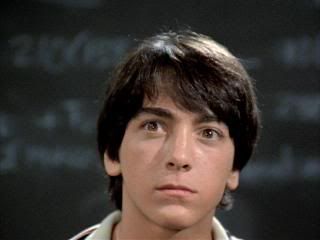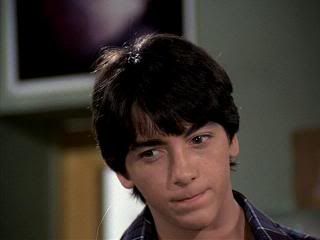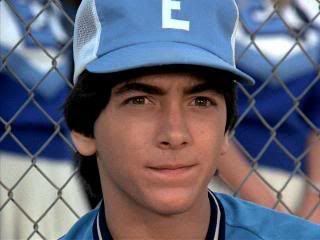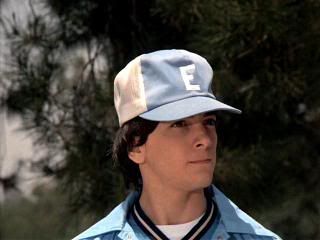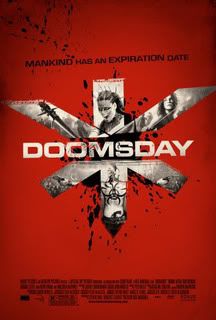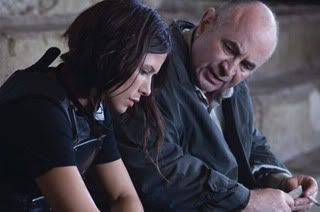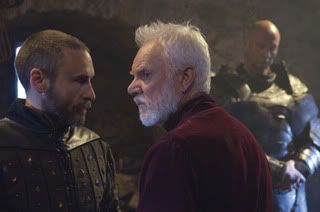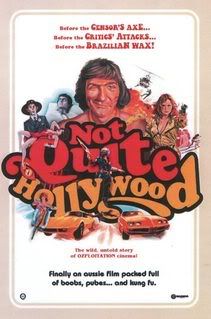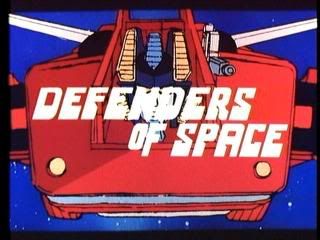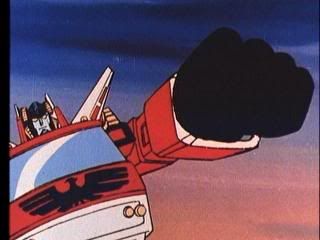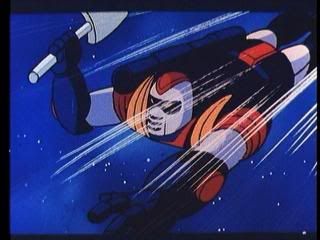[I had some issues taking screenshots, so the pictures have been taken from other sources and may not represent the actual picture quality of the film]
PLOT:Sammo Hung plays Lung, a young pig farmer who is pressured by his father to move to the big city to assist at his Uncle's restaurant. Lung idolizes Bruce Lee, and when his Uncle is threatened by some punks, he transforms from a bumbling country boy into a Kung-Fu master. He later has to use these skills to help his cousin, and a young lady friend who has been kidnapped, fend off a perverted crime boss and his goons.
REVIEW:
Ostensibly a parody of Bruce Lee films (particularly Enter The Dragon and Way Of The Dragon), Enter The Fat Dragon is instead a loving tribute to Lee from Sammo Hung (who actually appeared briefly in Enter The Dragon early in his career). Released amongst a slew of films from Bruce Lee imitators, Sammo's Bruce Lee impression is eerily (and amusingly) spot on, and even if the fights don't match up to Sammo's best of the era, there's plenty of impressive action and (for once) some actually amusing humor.
Sammo built his career on being surprisingly agile for a pudgy guy, and his characters are normally underestimated for being lazy (in this film, and others, he's referred to often as "fatty" or "pig") before blowing people's minds with his shocking fighting skills. Hung is working double duty here as both actor and director, and he shows a strong talent for capturing fight scenes, particularly in the finale (where Sammo takes on a series of henchmen individually) which could have easily felt claustrophobic with the three fights taking place in an enclosed warehouse.
Speaking of the final scene, it would be hard not to mention that one of the Chinese actors is in black face with an afro. It's more comical than offensive, and was apparently included as a parody of the American practice of casting white actors as Asians. The fight scenes as a whole vary wildly in terms of quality, with most of the early scenes involving Lung easily dispatching of a group of toughs. The most amusing fight scene occurs when Sammo is asked to be an extra in a Bruce Lee knock-off film and finds himself offended at the quality of the fighting of the Bruce Lee imitator. He voices his displeasure by beating the actor (and the other extras) into oblivion.
Kung- fu film fans will find lots of recognizable faces. Yuen Baio (Knockabout, The Prodigal Son) makes an opening credits appearance, Eric Tsang pops up briefly, and Leung Ka-Yan (who starred with Sammo in The Victim) shows up as Sammo's final opponent.
The Crash Cinema DVD features a pretty ratty print of the film, but it's luckily presented in it's original 2.35:1 ratio and is subtitled. Unfortunately, the subtitles are both burned in and feature plenty of spelling and grammatical errors. That said, it's always watchable and it's not difficult to follow the minimal plot on display. The sound is acceptable, and the soundtrack (which is an obvious nod to Lalo Schifrin's score to Enter The Dragon) is amusing in its own right.
Outside of chapter selections, the DVD features no special features.
More tribute that parody, Enter The Fat Dragon may be inconsistent at times, but it builds well and the humor works with the plot instead of being seemingly tossed in randomly. A fine introduction for those interested in Sammo's work, and a testament to the respect he had for Bruce Lee and his films. It would be nice to see a better presentation of the film on DVD, but for fans of Sammo Hung or Bruce Lee, this is a must watch.


